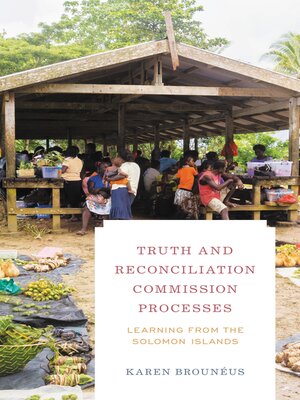Truth and Reconciliation Commission Processes
ebook ∣ Learning from the Solomon Islands · Peace and Security in the 21st Century
By Karen Brounéus

Sign up to save your library
With an OverDrive account, you can save your favorite libraries for at-a-glance information about availability. Find out more about OverDrive accounts.
Find this title in Libby, the library reading app by OverDrive.



Search for a digital library with this title
Title found at these libraries:
| Library Name | Distance |
|---|---|
| Loading... |
After war, does truth telling lead to more peaceful attitudes between former enemies? This book is the first to study the over-time effect of a Truth and Reconciliation Commission (TRC) process on people's attitudes towards peace. Focusing on the Solomon Islands TRC process, one of the least known or studied TRC processes in the world, and using surveys, focus groups and in depth interviews, the book reveals some critical issues for peacebuilding. For example, while support of the TRC was consistently quite strong over the two years of the study, there was a sharp decline in trust in the process as well as a significant increase in distrust and suspicion towards ex-combatants over the two-year period. The book shows that the ex-combatants did not feel safe to tell the truth in the TRC and had therefore decided beforehand what to say in the hearings. A systematic telling of untruths thereby took place, severely undermining relationships and peacebuilding in the country. The book weaves the findings from the Solomon Islands with experiences of other post-conflict truth telling process around the world, and suggests practical guidelines for future TRC processes after war.







